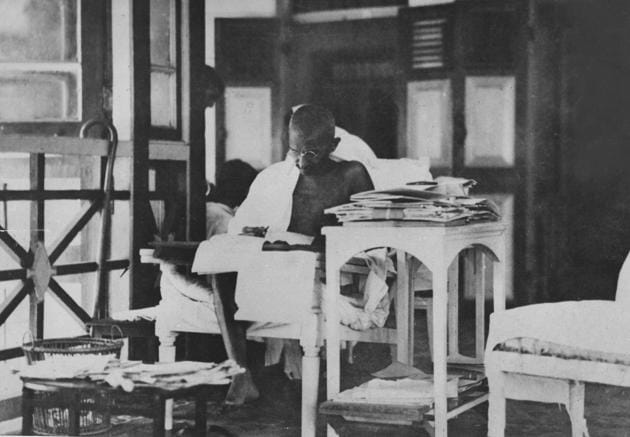Why Bapu remains relevant | HT Editorial
Gandhi, in life and death, left lessons contemporary India should heed
The greatest Indian ever, Mahatma Gandhi, was killed exactly 72 years ago today. The contours of his remarkable life are well known. From his early years in Gujarat and England to the initiation into law to activism in South Africa where he pioneered the idea of non-violent resistance; from his return to India to his leadership in converting the Indian National Congress into a mass-based political formation; from the Khilafat and Non-Cooperation struggle to the Dandi March, Civil Disobedience and the Quit India movements which gave a new character to the Indian freedom struggle; from his engagement with the question of caste and battling untouchability to cementing Hindu-Muslim unity; and from his unequivocal, firm commitment to truth to his political pragmatism, Gandhi’s contribution truly makes him the father of the nation. As Albert Einstein said, “Generations to come will scarce believe that such a one as this ever in flesh and blood walked upon this earth.”

It was both in life, and death, that Gandhi offered lessons for contemporary India. Two stand out. The first was his commitment to peaceful modes of struggle. Politics involves conflicts. Society has contradictions. Ideologies differ. And citizens feel strongly about issues. But there is one — and only one — way to express it, which is non-violent political mobilisation. Gandhi took on the world’s biggest imperial power with sheer moral authority and political skills. And he defeated this mighty military machine with no arms. At a time when sections of citizens feel aggrieved, for real or perceived reasons, at the government’s steps, they must abide by this Gandhian dictum. The lesson extends to the State too, which must exercise restraint in how it deals with dissent.
The second lesson was the importance of religious harmony and battling extremism. All his life, Gandhi worked for Hindu-Muslim unity. He was devastated at Partition and opposed it till the very end. One of his finest moments was stopping violence and mayhem in the wake of the country’s division in Bengal and, at the end, in Delhi. But it was precisely this commitment to unity that led to his assassination. Nathuram Godse was a Hindu fanatic, inspired by a world view which saw the country’s minorities as enemies and traitors. At a time when India stares at a growing divide between religious communities, and extremism and fundamentalism appear to be on the rise, it must recall what Gandhi stood for and believed and emulate it.



